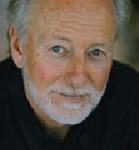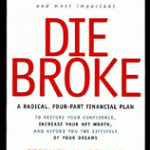Last week, as I visited my mother (91 in June) in a nursing home in Western Canada, the reality of what lies ahead for our elders and perhaps for ourselves was so in-my-face, I found myself hyperventilating (yoga training notwithstanding) and struggling to keep my spirits up, for her sake and mine.
In truth, I have a lot to be grateful for. My mom’s facility is as good as it gets: dedicated, kindly staff (if too few of them in oil boomtown Edmonton); clean, comfortable, well-equipped rooms; carefully calibrated meds for pain and depression; and lots of what we used to call extracurricular activities to help residents be more independent and social. Today, for example, a neighboring animal shelter had brought in puppies for petting. Sometimes, it’s nursery school children who are wonderful with old and disabled people. Last week while I was there, they had pub night when residents enjoy some wine and live entertainment.
When it was clear that my mother’s medical needs had become beyond our ability to provide for (geography didn’t help much), we choose this place also for the mix of age groups and levels of disability. So, my mom can socialize with a lovely 50-something woman named Sherry who suffers from MS, but who is also bright, friendly and also interested in jewelry and clothes. There are residents who play Scrabble and cards. And recently, a beautiful nurse-trainee from Brazil in body-hugging uniform, with fashionable haircut and great personality, was assigned there for a few weeks, and everyone perked up. All this costs about $30K/year, or less than half for a comparable facility here in Florida, and some of the expenses are tax-deductible.
But most of the population there are elderly so you can’t fight the God’s Waiting Room atmosphere, and I’m no better at staring that in the eye than the next person. So I spend most of my time amusing my mom: she adores Scrabble and Rummy 500, pizza and sushi, and a new brightly-colored dress. I can focus on these things because she already has her so-called affairs in order: personal directive and living will are all set; she gave me power of attorney a couple of years ago. I know what she wants for final ceremony and exactly where she wants her ashes strewn. Sure, she would rather be traveling to visit her great-grandchildren and spending the winter where it’s warm. But she has found a was to be happy in the moment. If you think about it, that is all we really have.
 Richard Leider (his Something to Live For: Finding Your Way in the Second Half of Life is just out), one of the conference organizers and speakers, that the second annual Positive Aging Conference will welcome both professionals and members of the public.
Richard Leider (his Something to Live For: Finding Your Way in the Second Half of Life is just out), one of the conference organizers and speakers, that the second annual Positive Aging Conference will welcome both professionals and members of the public.


